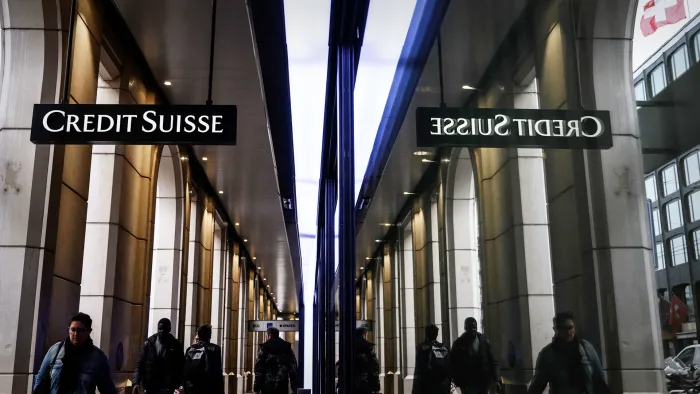But despite the strong string of recent profits, panic around the state of European banks and the rise in the cost of credit default swaps has been rattling investors. On March 23, the cost of insuring five-year credit default swaps jumped from 142 to 173 basis points.
But even amid worries that a fate similar to Credit Suisse could spill over into other large banks, analysts are warning against drawing too many comparisons.
Don’t Compare Credit Suisse To Other Banking Giants, Analysts Say
“There is no evidence of a flight of depositors at Deutsche, the factor that really sealed Credit Suisse’s fate,” Nils Pratley wrote for The Guardian. “Nor, as far as we know, is the European Central Bank in a flap about Deutsche in the way that Swiss authorities were when they advanced a 50 billion Swiss franc ($54.34 USD) borrowing facility to Credit Suisse.”
The biggest difference between Deutsche Bank and Credit Suisse is, according to a note that JP Morgan Chase (JPM) – Get Free Report analysts sent to its clients, that Deutsche Bank was able to complete its restructuring and regain trust long before the market shifted and became more fearful. A “fresh and intense focus on liquidity risk” sealed the deal for Credit Suisse.
“Where Deutsche’s governance fumbles could not incrementally ‘cost’ the bank anything in franchise loss, Credit Suisse’s were immediately punished with investor outflows in the Wealth Management division, causing what should have been seen as the bank’s ‘crown jewel’ to themselves deepen the bank’s P&L losses,” the analysts write.
This doesn’t mean that shares of Deutsche Bank and many other banks will not flounder for a while as the wider market uncertainty around the string of shutdowns continues. But for now, the majority opinion is that investors may be feeding off of each other’s panic that will slowly peter out.
“Traders are acting like traders — sell first and ask questions later,” Bruce Kamich writes for TheStreet’s RealMoney. “Shares of DB are likely to stay under selling pressure.”






























